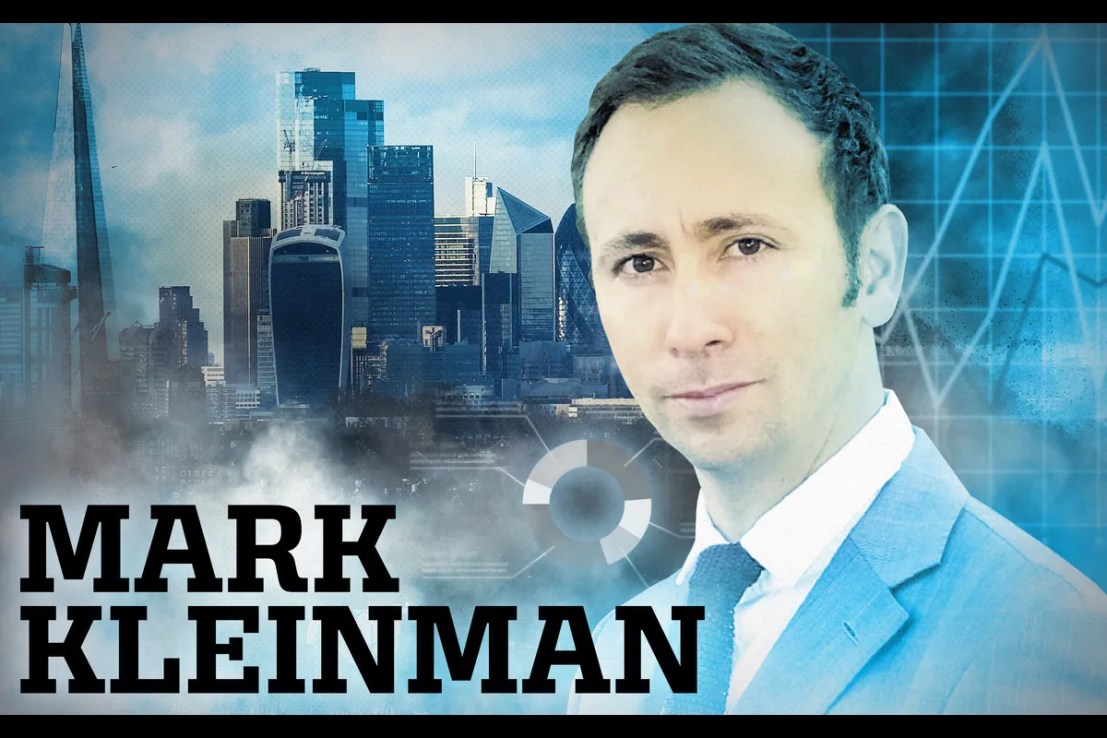
Mark Kleinman is Sky News’ City Editor and the man who gets the Square Mile talking in his weekly City AM column
Wise fails its name in handling of US listing move
If only Wise was as smooth at transferring its stock market listing as it is moving its customers’ money.
The company founded by Taavet Hinrikus and Kristi Kaarmann can stake a legitimate claim to being the most impressive British start-up of the last 20 years. Now worth £10.5bn, its performance since going public has been a rare bright spot for technology companies listing in London – which makes the blow from its decision to relocate to New York all the more acute.
Its handling of the listing move, however, is turning into a governance mess comparable to any other fiasco in the City in recent times. True, it won a resounding victory in Monday’s vote – highlighting the on-the-hoof execution of a campaign by Hinrikus’s vehicle, Skaala, to oppose a decade-long extension of dual-class voting rights which will entrench Kaarmann’s power over the company until after 2035.
Skaala labelled it a breach of shareholder democracy and accused Wise of misleading investors over the views of proxy advisors. It has also trained its guns on the company’s chairman, David Wells, who it says gave a “legally and commercially inaccurate” account of the options open to Wise in relation to a shareholder vote on the dual-class structure.
Monday’s EGM saw the key resolutions approved, but nobody emerges from this affair with their reputation enhanced.
According to Skaala, it proposed “two alternative schemes of arrangement – both facilitating the US dual-listing, but offering shareholders the choice to approve it either with or without the 10-year extension of the dual-class voting rights”.
Wise should have set out publicly why it declined to pursue this alternative, which would have been substantially fairer to independent shareholders. The company also deserves severe opprobrium for failing to correct the impression that Pirc, the governance adviser, was supporting its position on the future share structure.
When it became aware that Pirc held the opposite view, Wise slipped the disclosure out on its website rather than via the regulatory news service. Given the influential status enjoyed by proxy advisors, this was a disgrace and reflects poorly on its board.
It might have got its way, but Wise’s handling of the move has been unwise, and then some.
Proud to be different? Nationwide’s pay cynicism is breathtaking
Dominic West has a lot to answer for. The actor’s role as a rapacious bank manager who nonchalantly rips off his own customers, only to be informed that there’s a rival – Nationwide – which does things the right way has become the industry’s most talked about ad campaign for years.
So riled were its high street competitors that one, Santander UK, complained to advertising watchdogs – and won, on the grounds that Nationwide’s TV spot had implied that, unlike its peers, it wasn’t closing any of its branches.
Less than 18 months later, Britain’s biggest building society is at it again, castigating banks which are obliged to hand out dividends to shareholders rather than confining them to the cosy network of members that Nationwide has the privilege of doing.
The real story is rather different. Nationwide’s annual meeting earlier this month saw Kevin Parry, its chairman, exhibiting a bravura that was rather breathtaking.
Chief executive Debbie Crosbie’s £7m pay deal was not at all like the lavish sums handed to bank CEOs, he said, because money was “not the primary motivation”.
Tracey Graham, the non-executive director who chairs the mutual’s remuneration committee, said that it needed to pay competitively to prevent executives defecting to rivals.
Hang on a second? If Nationwide is so ‘proud to be different’, its brand slogan for years, why does it need to worry about that?
All the organisation is succeeding in doing right now – with its refusal to elect members to its board, the sanctimony seeping through its marketing campaigns and the very unmutual nature of its pay packages – is to appear more hypocritical than any Westian caricature featuring in its ads.
Crosbie and co look more like the greedy bank managers lampooned by West with every passing week.
Race for KPMG top job may leave vacuum at UK helm
The race is on – or at least almost on. In the global accountancy sector, the chairmanship of KPMG International is about as big a job as they come. Could it be heading the way of a Brit for the first time since Sir Mike Rake stepped down from the post in 2008?
That scenario looks increasingly plausible, with Jon Holt, chair of KPMG’s UK firm, seemingly certain to stand for the role next year. Insiders at the audit and consulting giant, which employs roughly 265,000 people around the world, say that Holt has all but made his mind up to throw his hat into the ring (although the firm itself declined to comment).
The last person to hold the UK and International chair roles simultaneously was Rake. That would not be a route open to Holt, meaning a vacancy at the top of the UK firm is likely to emerge if he is successful in a tilt at the broader position.
Since becoming UK chief executive in 2021, he has been forced to contend with the legacy of audit quality failures committed during the reigns of predecessors, and has won plaudits for reviving its financial performance, with record profits per partner last year as a result of tougher cost management. Expect a similar playbook if Holt lands the International chairmanship.







